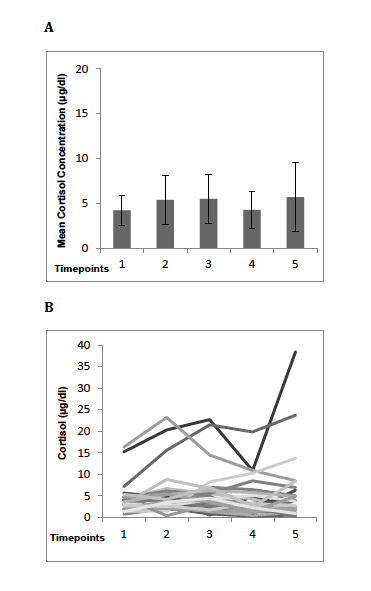|
Back to Fall Congress
Cortisol Response to Operative Stress with Anesthesia in Healthy Children
Lisa Taylor, MD, Richard Auchus, MD, Laurence Baskin, MD, Walter Miller, MD.
UCSF, San Francisco, CA, USA.
Background: Supra-physiologic 'stress dosing' is generally given to adrenally insufficient patients undergoing operative procedures and/or general anesthesia. However, the normal responses of cortisol to surgery are poorly documented, especially in small children. Recent studies in adults suggest that massive glucocorticoid dosing is not needed, especially in minimally invasive surgery.
Objective: We sought to characterize the normal cortisol secretion rate in healthy children undergoing minimally and moderately invasive urologic procedures.
Design and Setting: This was a prospective observational study conducted at a tertiary referral center. Patients: 30 healthy children, age 5 months to 6 years, were studied undergoing elective urologic procedures.
Methods: Procedures were performed by a single surgeon; anesthesia was by a standard protocol. Sera were obtained at 5 points: intravenous catheter placement, intubation, 50% completion of surgery, anesthesia reversal, and 1-hour post-operative. Cortisol and cortisone were quantitated by gas chromatography and mass spectrometry.
Results: Group cortisol values ranged from 4.21 to 5.71 μg/dl across the five time points; none of these mean values differed significantly (p <0.05). There were no differences according to age, time of procedure, caudal anesthesia, and moderate versus minimally invasive procedures. There was a modest diminution in cortisone across the five time points.
Conclusions: Minimal and moderately invasive urological procedures do not result in a cortisol stress response in healthy children. Peak cortisol levels were seen 1-hour post- operatively. These data suggest that current guidelines for stress dosing in adrenally insufficient patients substantially exceed physiologic requirements during minimally invasive procedures.

Back to Fall Congress
|


